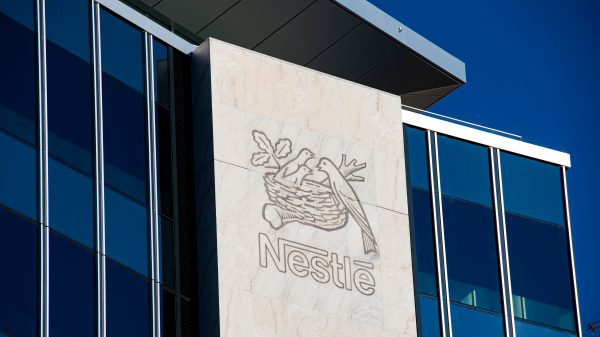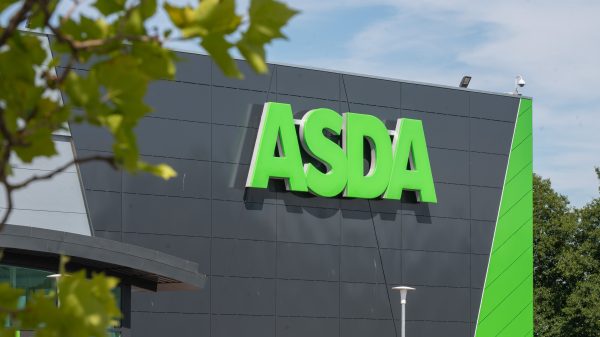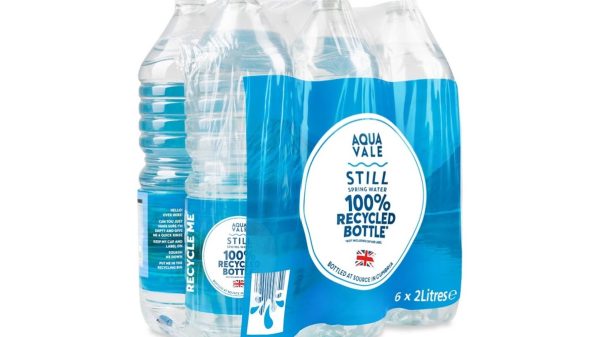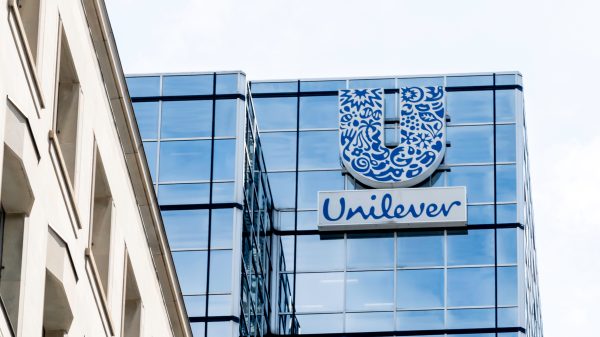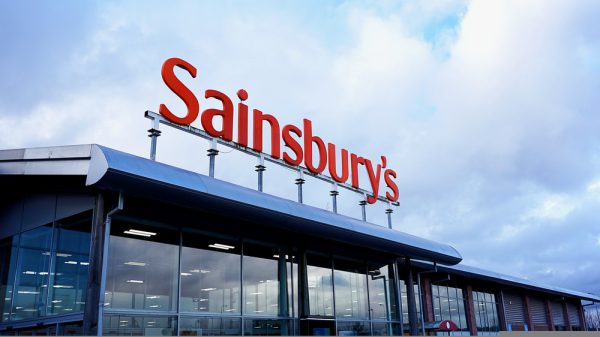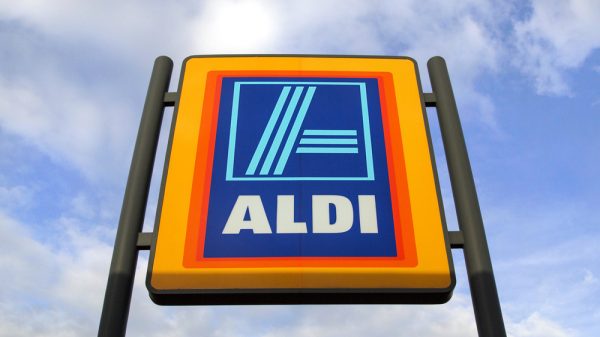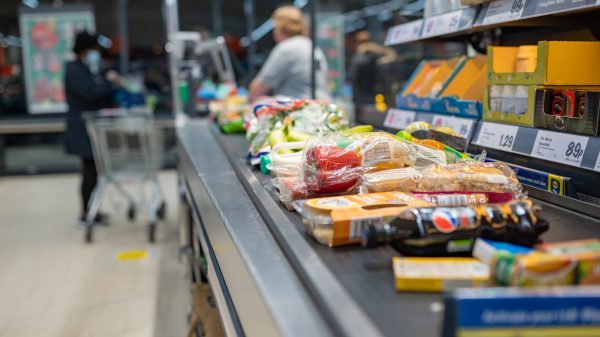The cost of living crisis won’t be solved by opting for Aldi own-brand products – despite what DEFRA minister George Eustice believes.
With one-fifth of Britons already buying fewer food products, it’s clear that as the burden of the cost of living gets heavier, shopping baskets are getting lighter.
While ministers and supermarket CEOs debate which grocer or range is the most economical, offer (potentially patronising) advice, or deflect accountability at every turn, low-paid workers and families continue to struggle.
The severity of inflation and rising bills demands a robust governmental solution that goes beyond the meandering conversation between individual lifestyle choices and supermarket superiority.
READ MORE: Families should buy cheaper alternatives, urges DEFRA minister
Consumer choice
Earlier this week, DEFRA secretary George Eustice offered advice to help households “manage” budgets, claiming families could just opt for cheaper “value brands” over “branded products”.
The advice came as the latest figures show that food inflation has reached 5.9%, the highest it’s been since December 2011. Simultaneously, the fall in real wages has seen the biggest cost of living squeeze since the 1970s.
According to the think tank Resolution Foundation, around 1.3 million people will not be able to afford basic necessities from April, including groceries.
Despite this, Eustice – who claims £196,000 in personal expenses each year – believes otherwise. He claimed shoppers choosing own branded items can “actually contain and manage their household budget”.
In response to his comments, shadow Treasury minister Pat McFadden said Eustice was “woefully out of touch from a government with no solution to the cost-of-living crisis facing working people”.
Food campaigner Jack Monroe added that the environment secretary was in “no position” to hand out financial advice, and the Liberal Democrats said Eustice was living in a “parallel universe.”
However, Eustice explained his comments, commending the “very, very competitive retail market”, stating there was “a lot of competition to keep those prices down”.
Are supermarkets keeping prices low enough?
Taking a different approach to Eustice’s argument, Aldi UK boss Giles Hurley urged customers to “change their supermarket, not their lifestyle”.
The advice follows a surge of sales in Aldi, as the discount retailer was named the fastest-growing retailer over the 12 weeks to 17 April. Its sales increased by 4.2%, followed closely by fellow discounter Lidl, which saw sale increase by 4%.
“Consumer behaviour in the grocery sector is already shifting, with the discounters seeing an increase in sales early in 2022,” NielsenIQ head of retailer and business insight UK Mike Watkins said.
Watkins added the rise of discounters will likely see Aldi and Lidl hit a “new high of 20% grocery market share”. He said that despite Eustice’s remarks, shoppers were already opting for own label goods “as a conscious decision to save money”.
READ MORE: Aldi CEO urges consumers to ‘change their supermarket, not their lifestyle’
However discounters are not alone in supressing price hikes and driving on-shelf prices down, with Asda spending £73 million to freeze and cut prices as it reveals its new Just Essentials line.
Similarly, Morrisons has cut prices on 500 products, Tesco has started an Aldi price match alongside its “low everyday prices” and Sainsbury’s recently announced it would lower prices across 150 of its highest volume fresh products.
Last month, Tesco revealed its pre-tax profits have tripled to £2.03 billion, with its retail profits up by 34.9%. Last week, Sainsbury’s also announced its profits have more than doubled, to £730 million.
It’s clear that many of the grocers dominating the market are a far cry from scraping together the pennies to get by. It’s also clear that they have the financial means to support both the struggling poultry and pig industries while also supporting the hard-pressed consumer.
With profits tripling and spilling into the billions, has passing on rising costs to shoppers been a conscious choice rather than a necessity?
READ MORE: Tesco profits triple as supermarket warns of impact of soaring inflation
What are shoppers buying?
While Eustice and Aldi boss Hurley dish out suggestions, consumer data already indicates that shoppers are choosing more affordable items and shopping at discounters.
According to the Voucher Codes Food Spend Report, 10% of Britons said their food bill is too expensive and they can’t afford the cost and 28% have also opted for cheaper alternatives to keep food costs low.
NielsenIQ also revealed that Aldi and Lidl were leading the market in terms of sales growth on a value basis, which have increased by 6.4% and 9.1%, respectively.
Data also showed that shoppers were purchasing less meat, fish and poultry in a bid to save money with volume sales decreasing by 13% year-on-year, in the four weeks to 23 April.
With chicken prices levelling to beef prices, Co-op CEO Steve Murrells said customers might even switch to vegan alternatives if poultry prices continue to rise.
More alarming are the patterns invisible to retail data – the doubling number of foodbank users and the increase of low-paid workers relying on inadequate social security.
According to FareShare, three quarters of foodbanks have experienced an increase in demand which has seen some supermarkets such as Asda and the Co-op open national food drives over April and May. The responsibility however, should not entirely be the retailer’s to bear.
Of the many proposed solutions to alleviate the crisis: such as reversing the National Insurance increase, enacting a windfall tax or restoring the £20 on Universal Credit – Eustice has chosen to advise citizens to buy cheaper biscuits.
The reality is Britons are already “buying value brands”, “changing supermarkets, not lifestyles” and buying less or not buying at all – yet the cost of living crisis continues to affect consumers.
Click here to sign up to Grocery Gazette’s free daily email newsletter


